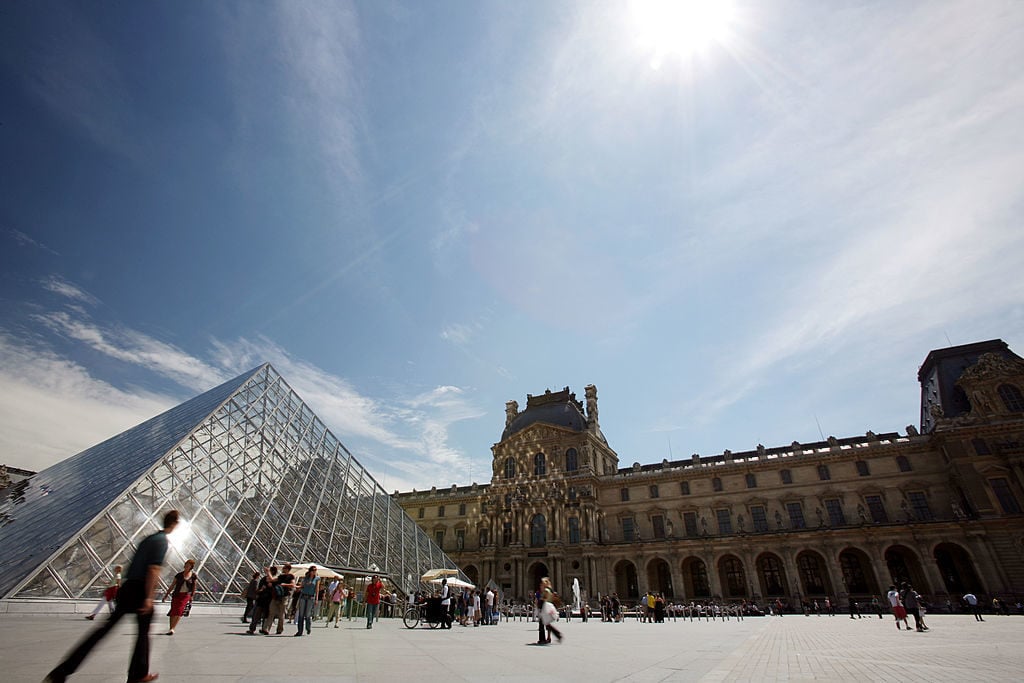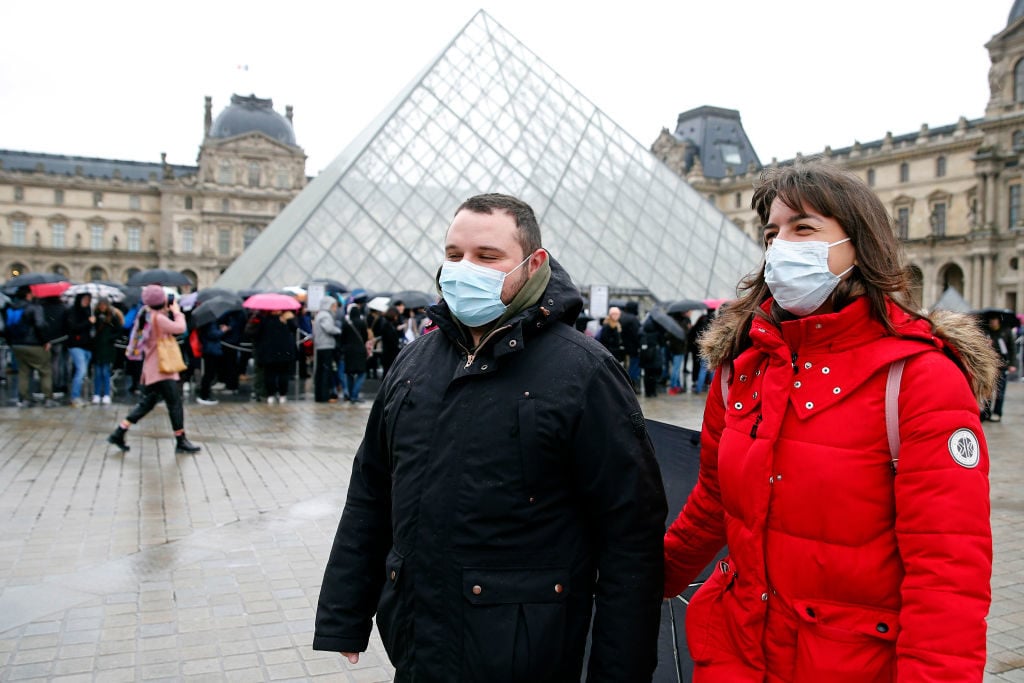Art World
The Louvre’s Staff Forces the Museum to Close Its Doors and Venice Becomes a Ghost Town as Coronavirus Hits Tourism
Tourism has dipped as European and Chinese travellers hunker down out of concerns for public health.

Tourism has dipped as European and Chinese travellers hunker down out of concerns for public health.

Staff at the Louvre forced the museum to close on Sunday due to growing fears over the spread of the coronavirus. The move comes after the French government became the latest to ban large gatherings. Museums and historic sites around Europe face a sharp fall in attendance because of the disruption caused by the fast-spreading virus.
Swathes of visitors were left standing in line in the rain outside the Louvre yesterday, March 1, as staff voted to close the Paris museum during an emergency meeting. A union representative tells AFP that staff voted “almost unanimously” not to open the museum. The museum remains closed today and it is unclear when it plans to reopen. Artnet News contacted the Louvre for comment, but did not hear back by press time.
On Saturday, the French government banned gatherings of more than 5,000 people in an effort to contain the spread of the virus. The country has confirmed 130 cases, and two deaths, as of time of writing. “The Louvre is a confined space which welcomes more than 5,000 people a day,” the union representative said. “There is real concern on the part of staff.”

Tourists wearing face masks walk past the Louvre Museum as the museum was closed for a staff meeting about the coronavirus outbreak on March 2. Photo by Chesnot/Getty Images.
Around 86,000 people have been infected around the world, with cases in more than 60 countries, and more than 3,000 deaths, the majority in China. Last week, more than $5 trillion was wiped from the global stock market over concerns about the economic impact of the infection. Fears about the impact on the art market are growing.
Meanwhile, the number of coronavirus cases in Europe continues to rise sharply. The French finance minister, Bruno Le Maire, warns the virus could impact French growth “much more significantly” than previously thought, according to Le Parisien. Museums and cultural sites look set to see a drop in international tourism, especially if the virus continues to spread into the high summer season.
The European commissioner for internal market and service, Thierry Breton, told the French-language outlet BFMTV that EU member states recorded two million fewer overnight stays in January and February, which amounts to a loss of around €1 billion ($1.1 billion) each month. The fall is being attributed to a drop in tourism from China, where the virus first broke out in December.
At the end of January the Chinese government blocked people from buying tour packages and discouraged citizens from traveling abroad. France is a top destination for Chinese tourists, around 2.2 million of whom travel there each year. The Louvre is the most visited museum in the world, and 75 percent of its 9.6 million visitors last year were from abroad. The majority of oversees visitors come from the US but China is now in second place, according to the museum.
As governments around Europe are advising citizens to avoid non-essential travel to affected countries, the economic impact from the lost tourism could be even more severe. In Italy, which was the first European country to report a significant spread of the disease, there are 1,694 cases of the virus, and 41 people have died, as of time of writing.
Last Monday, authorities shut down all museums in northern Italy. In the city of Venice, which is still recovering from severe flooding in November, the annual carnival was ended early and the majority of tourists have emptied out of the city. “We were waiting for the carnival to get the economy going again after the acqua alta, but now we have a new problem,” a shop worker tells the Guardian. While the flooding saw income drop by 40 percent at the end of last year, new figures suggest the virus could cause a 30 to 40 percent dip in the first quarter of 2020.
In Germany, the number of cases has risen to 129, and Switzerland, which has 27 cases, has also banned large gatherings. On Friday, the Baselworld watch and jewelry fair was postponed until 2021. It is organized by the MCH Group, which was forced to cancel its 2020 edition of Art Basel Hong Kong.
The UK has reported 36 cases so far and is preparing for a further spread. UK prime minister Boris Johnson has called an emergency meeting today to discuss further measures, which could also see restrictions on large gatherings.
As the number of coronavirus cases in the UK rises, the British Museum in London says on its website: “We continue to closely review the advice from Public Health England who assess the UK risk as moderate,” and so it has made not changes in its operations. Today it updated that advice, adding: “The safety of our staff and visitors is of the utmost importance and we keep situations like this under active review and update advice issued accordingly.”